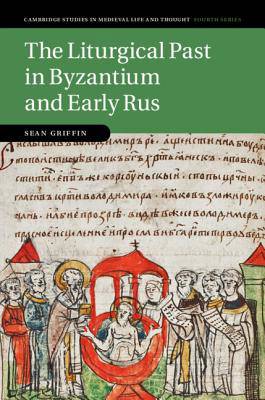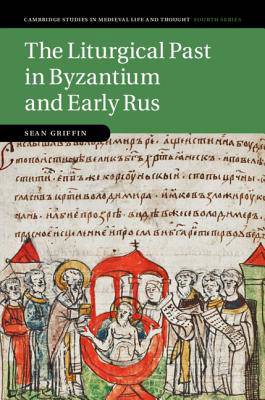
Door een staking bij bpost kan je online bestelling op dit moment iets langer onderweg zijn dan voorzien. Dringend iets nodig? Onze winkels ontvangen jou met open armen!
- Afhalen na 1 uur in een winkel met voorraad
- Gratis thuislevering in België vanaf € 30
- Ruim aanbod met 7 miljoen producten
Door een staking bij bpost kan je online bestelling op dit moment iets langer onderweg zijn dan voorzien. Dringend iets nodig? Onze winkels ontvangen jou met open armen!
- Afhalen na 1 uur in een winkel met voorraad
- Gratis thuislevering in België vanaf € 30
- Ruim aanbod met 7 miljoen producten
Zoeken
Omschrijving
The chroniclers of medieval Rus were monks, who celebrated the divine services of the Byzantine church throughout every day. This study is the first to analyze how these rituals shaped their writing of the Rus Primary Chronicle, the first written history of the East Slavs. During the eleventh century, chroniclers in Kiev learned about the conversion of the Roman Empire by celebrating a series of distinctively Byzantine liturgical feasts. When the services concluded, and the clerics sought to compose a native history for their own people, they instinctively drew on the sacred stories that they sang at church. The result was a myth of Christian origins for Rus - a myth promulgated even today by the Russian government - which reproduced the Christian origins myth of the Byzantine Empire. The book uncovers this ritual subtext and reconstructs the intricate web of liturgical narratives that underlie this foundational text of pre-modern Slavic civilization.
Specificaties
Betrokkenen
- Auteur(s):
- Uitgeverij:
Inhoud
- Aantal bladzijden:
- 284
- Taal:
- Engels
- Reeks:
- Reeksnummer:
- nr. 112
Eigenschappen
- Productcode (EAN):
- 9781107156760
- Verschijningsdatum:
- 26/09/2019
- Uitvoering:
- Hardcover
- Formaat:
- Genaaid
- Afmetingen:
- 157 mm x 229 mm
- Gewicht:
- 544 g

Alleen bij Standaard Boekhandel
+ 345 punten op je klantenkaart van Standaard Boekhandel
Beoordelingen
We publiceren alleen reviews die voldoen aan de voorwaarden voor reviews. Bekijk onze voorwaarden voor reviews.











